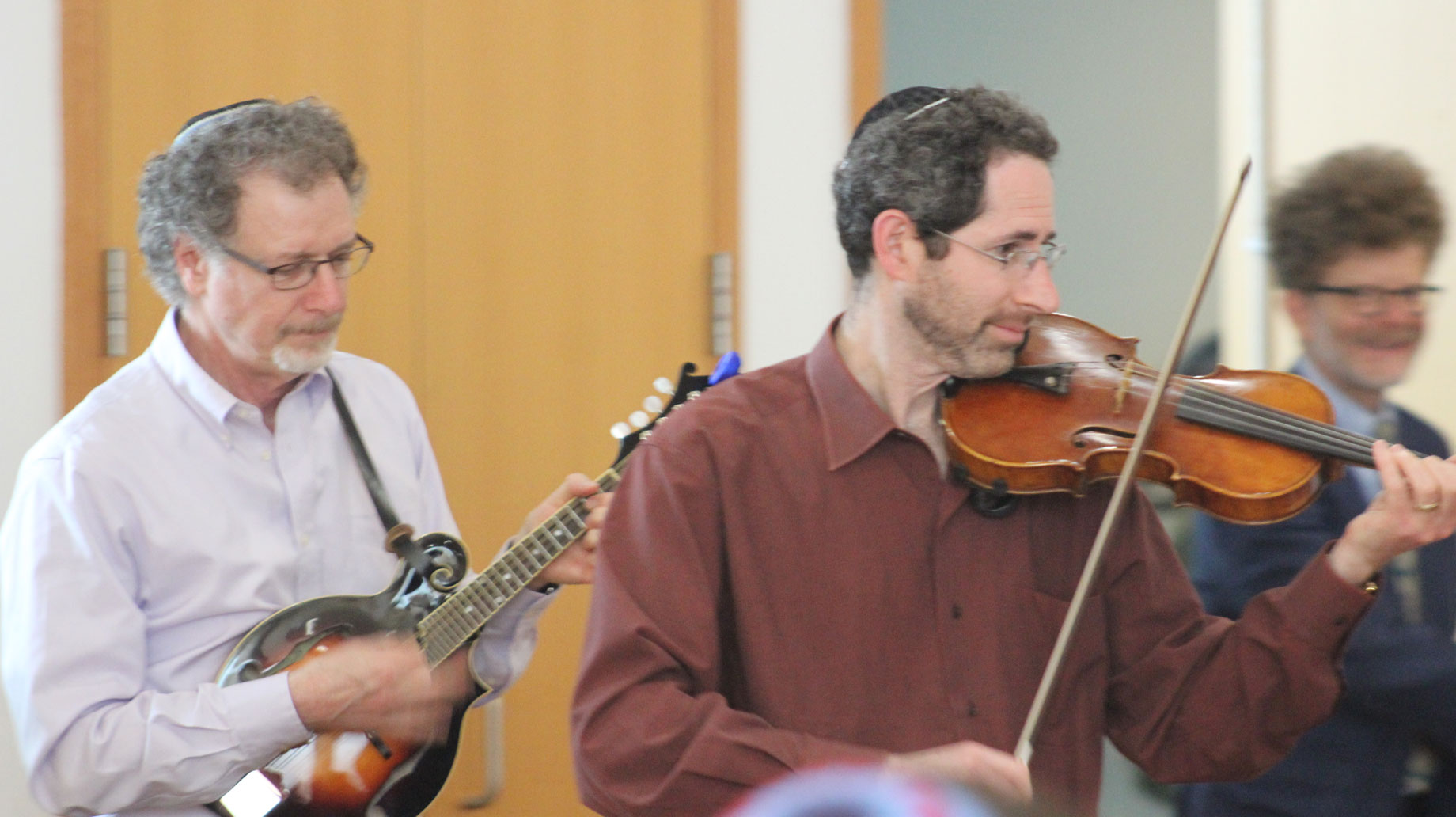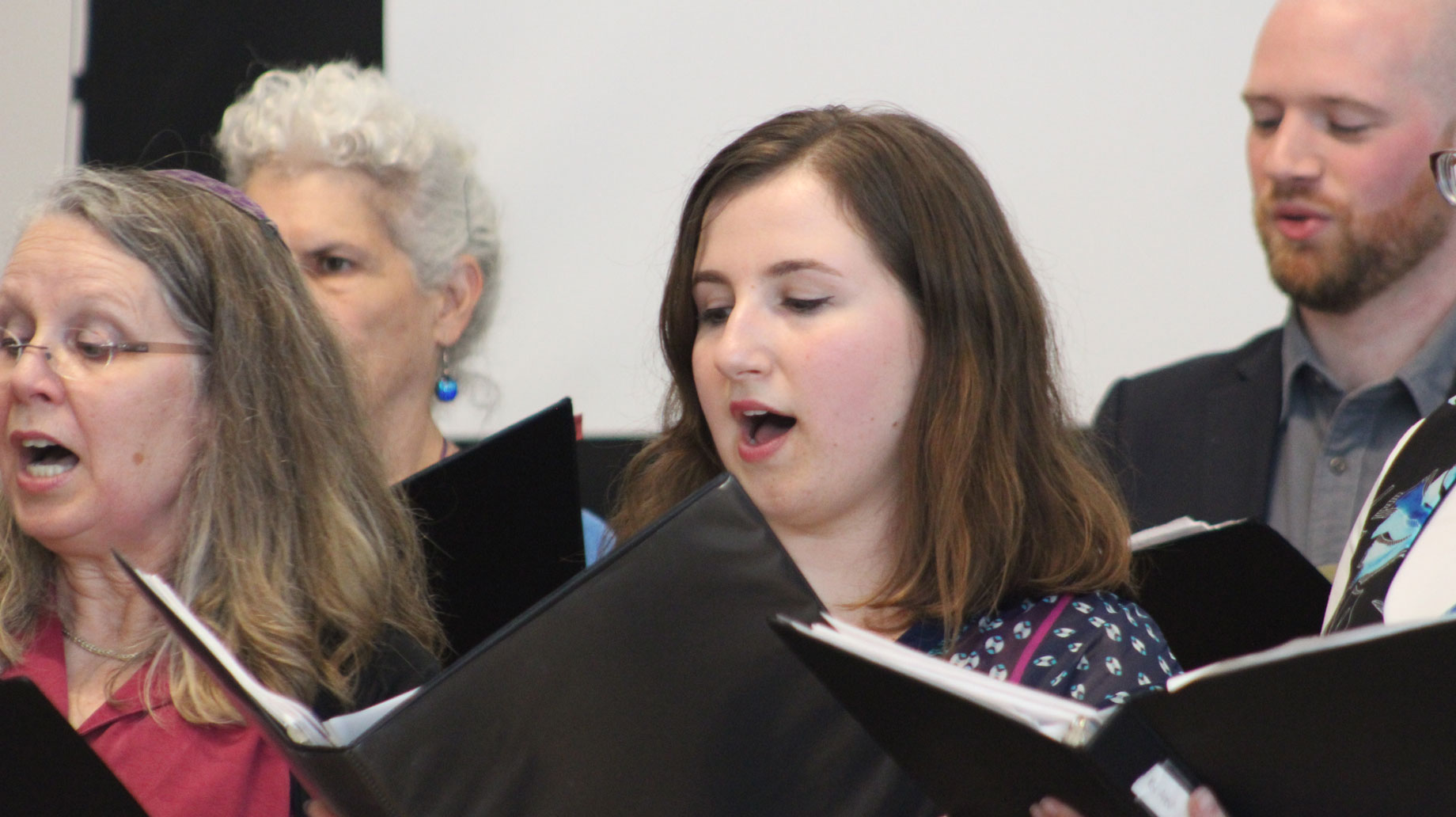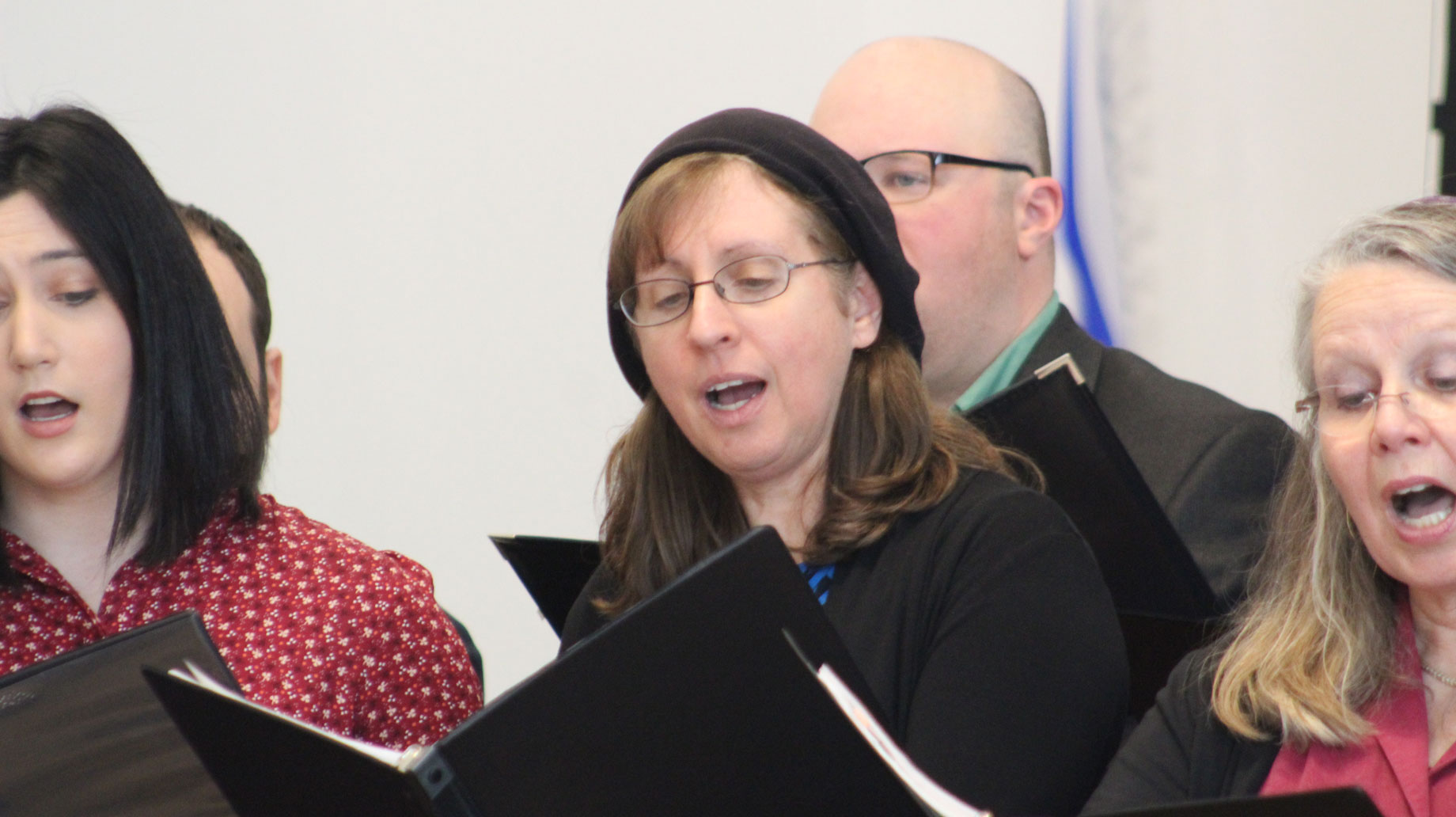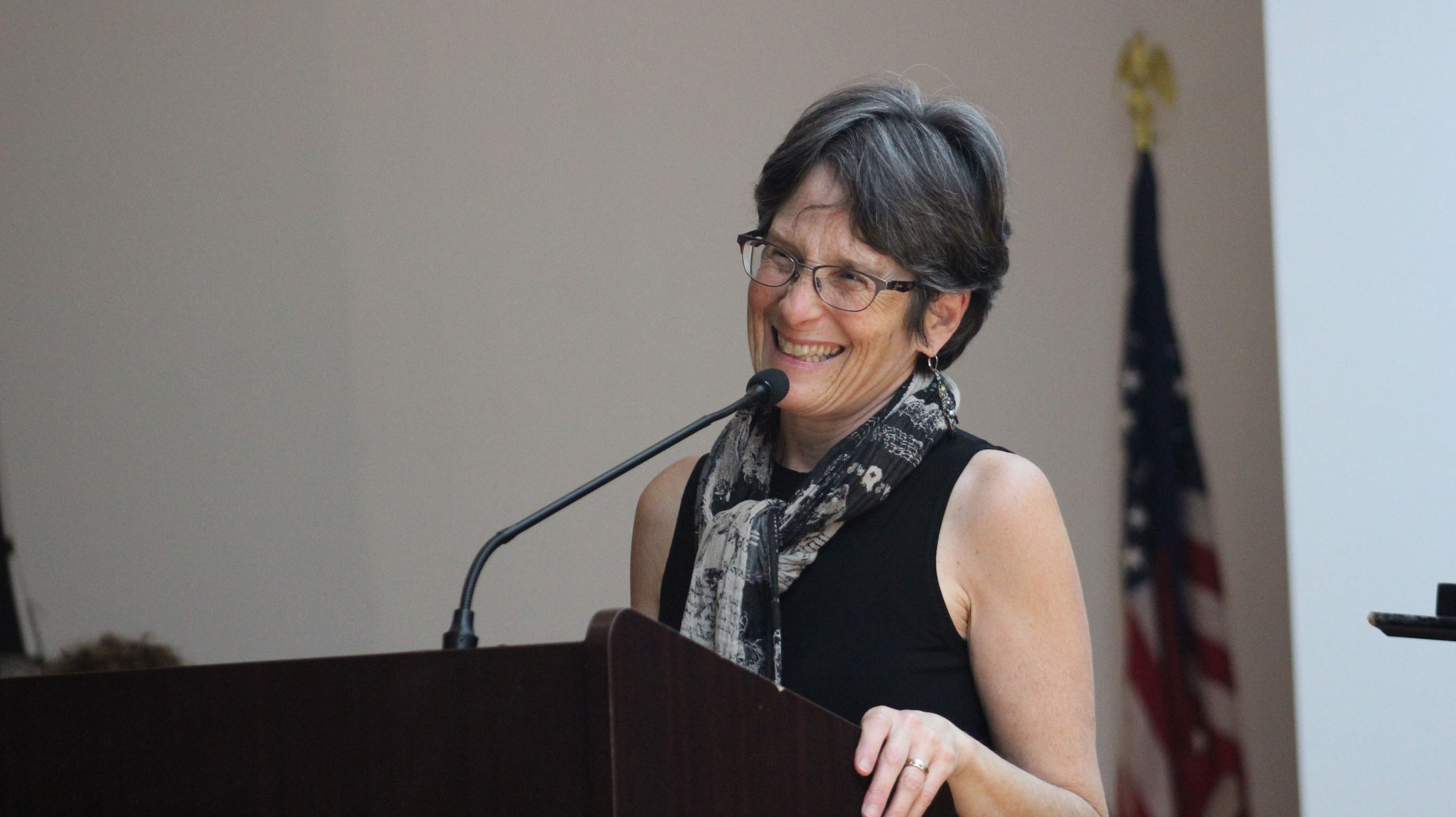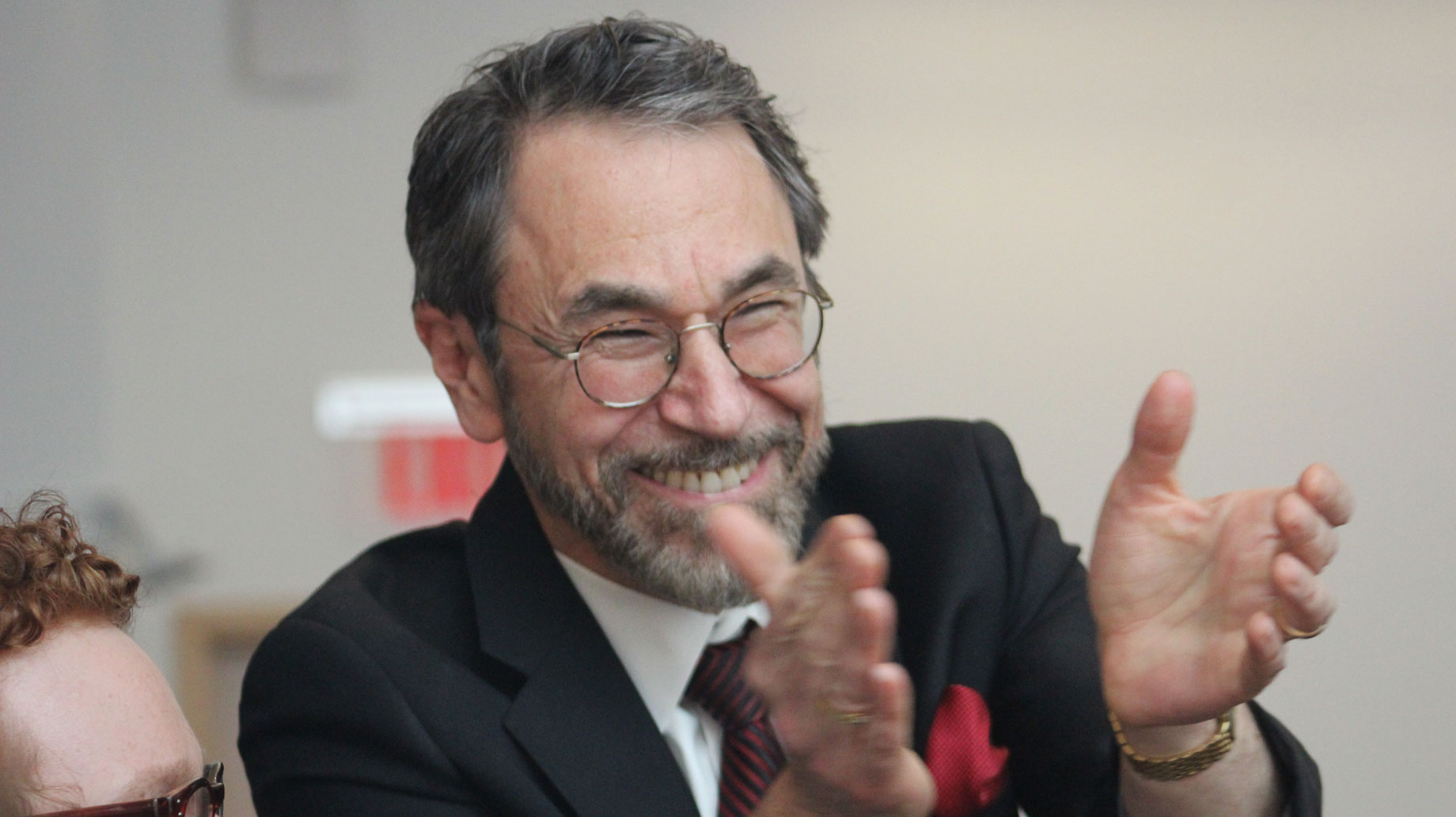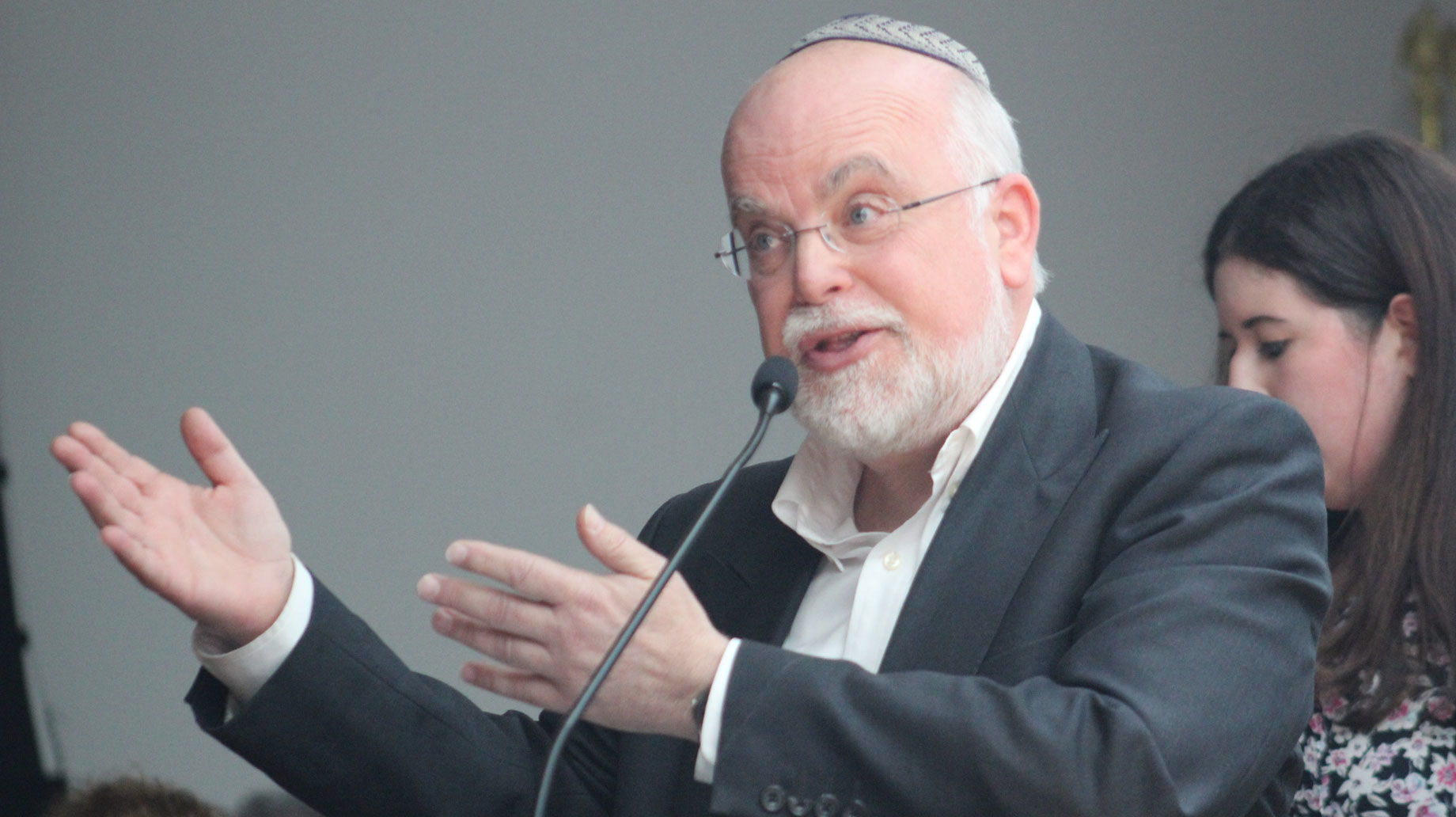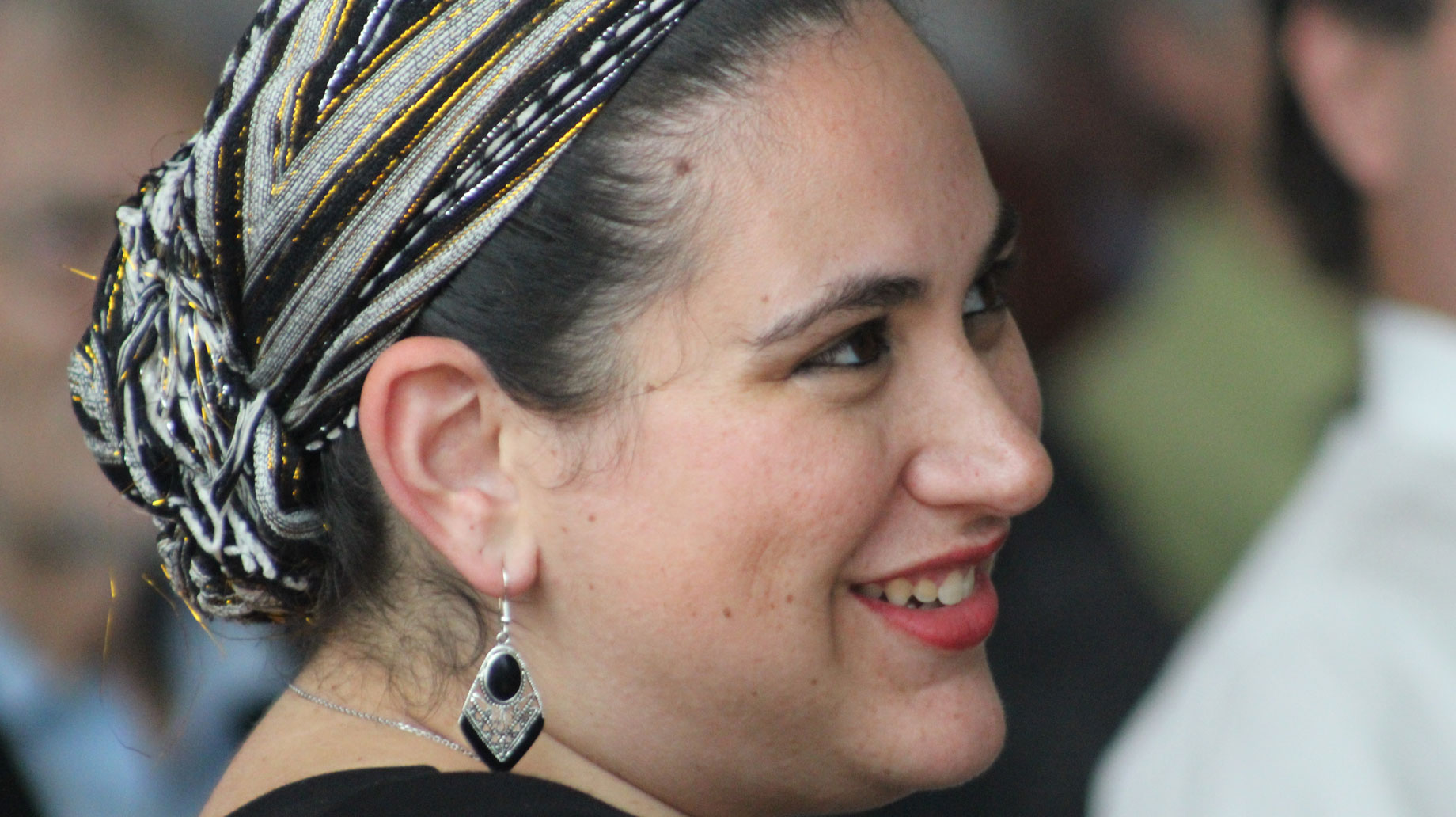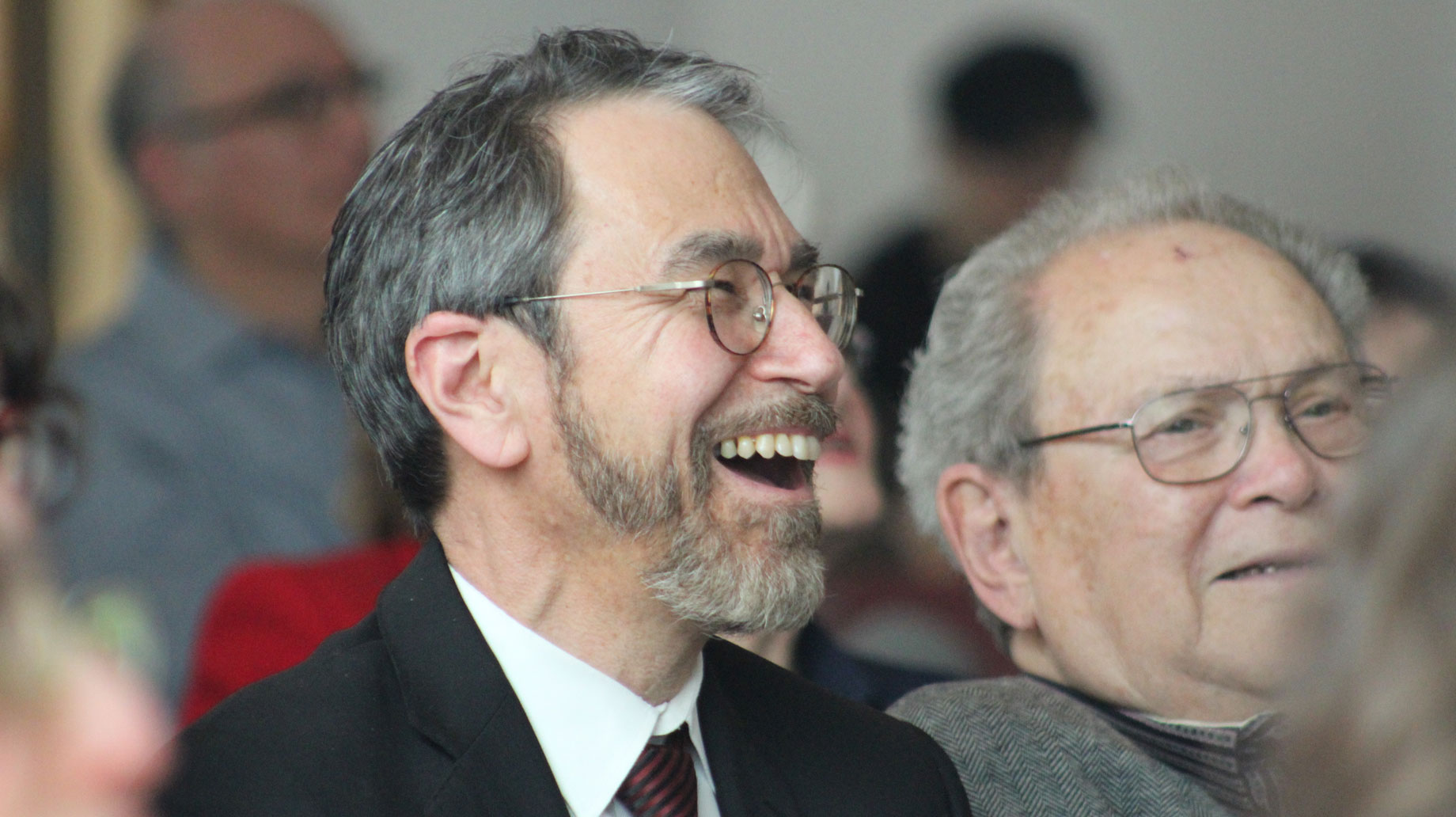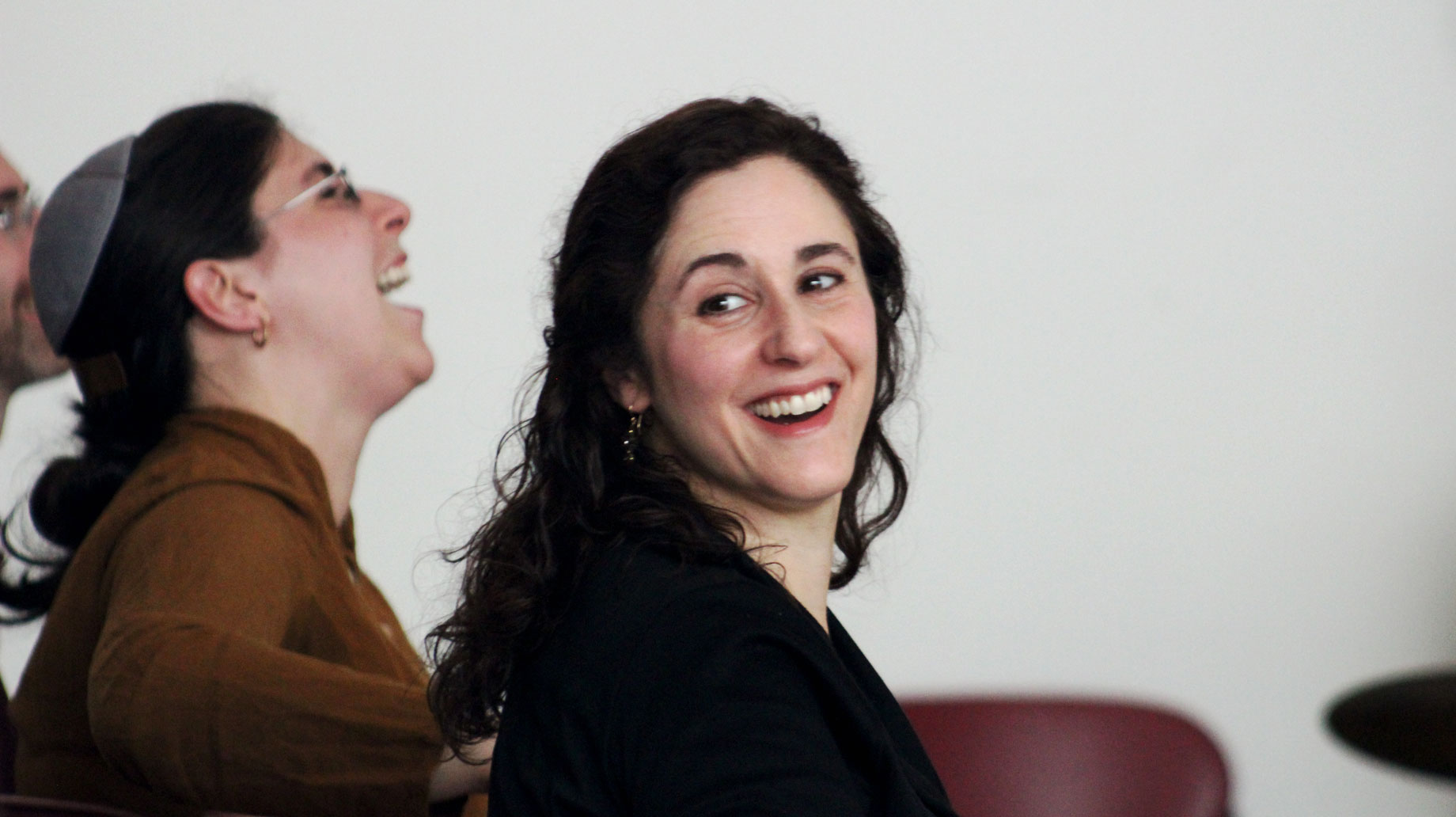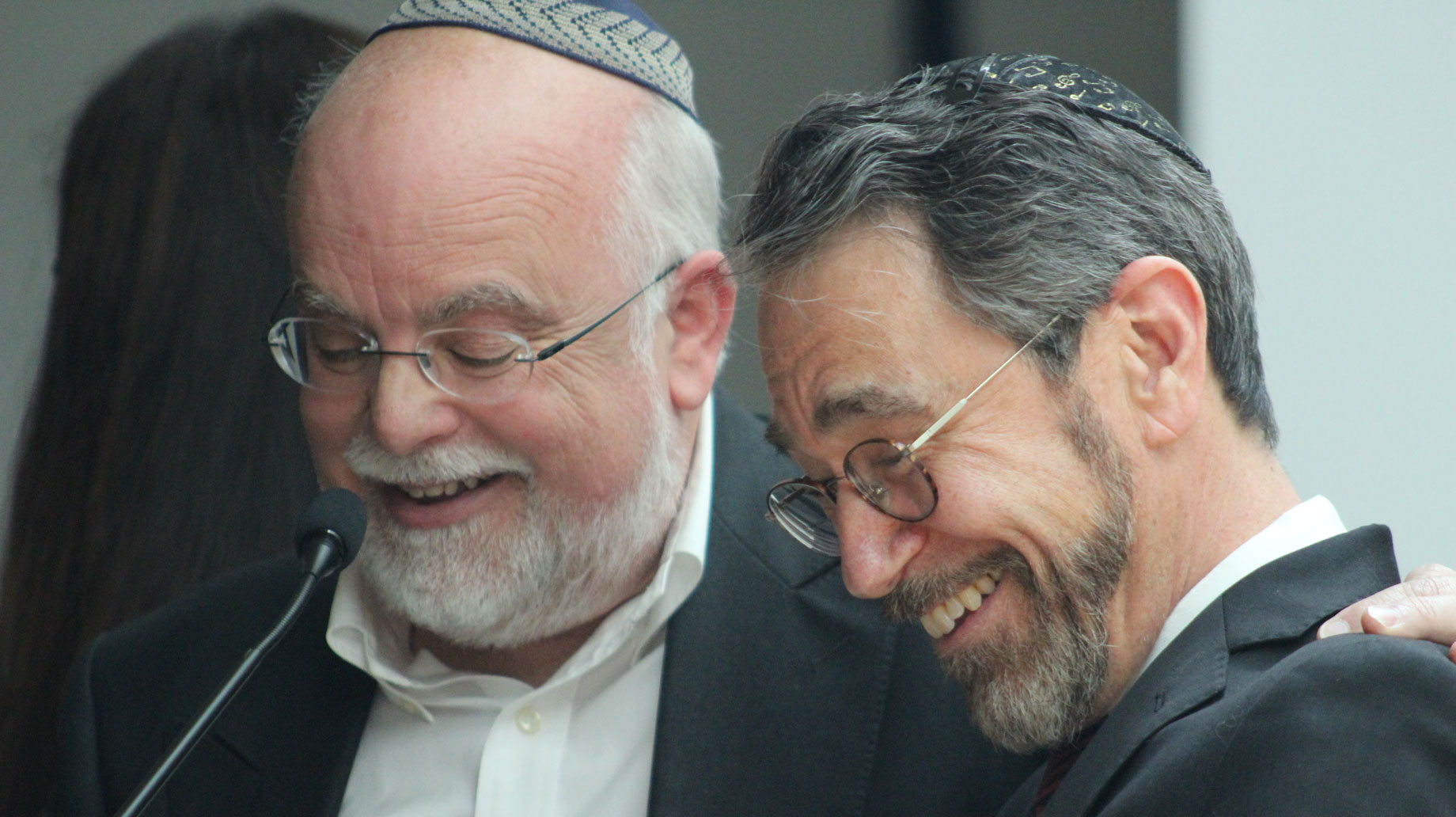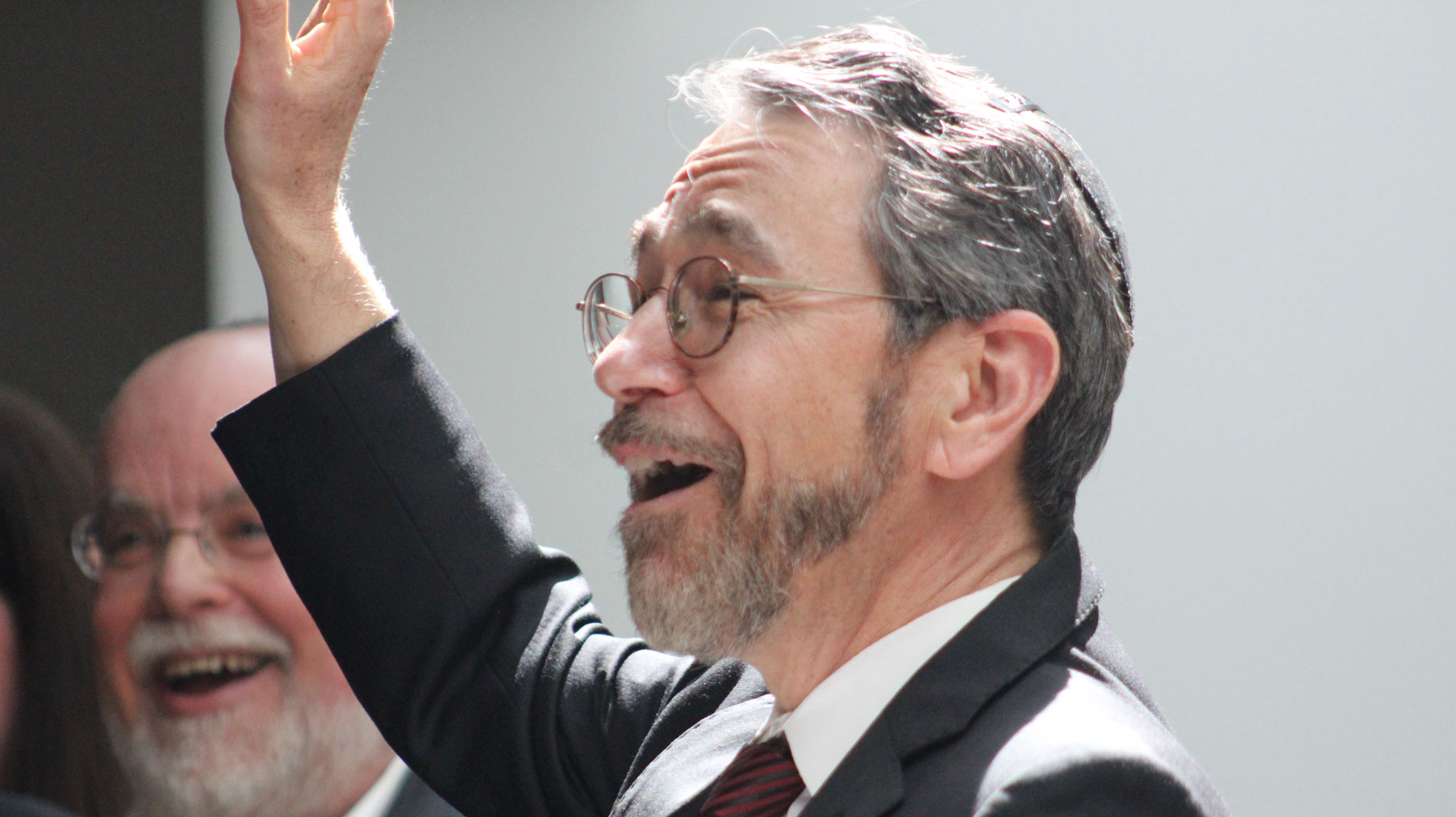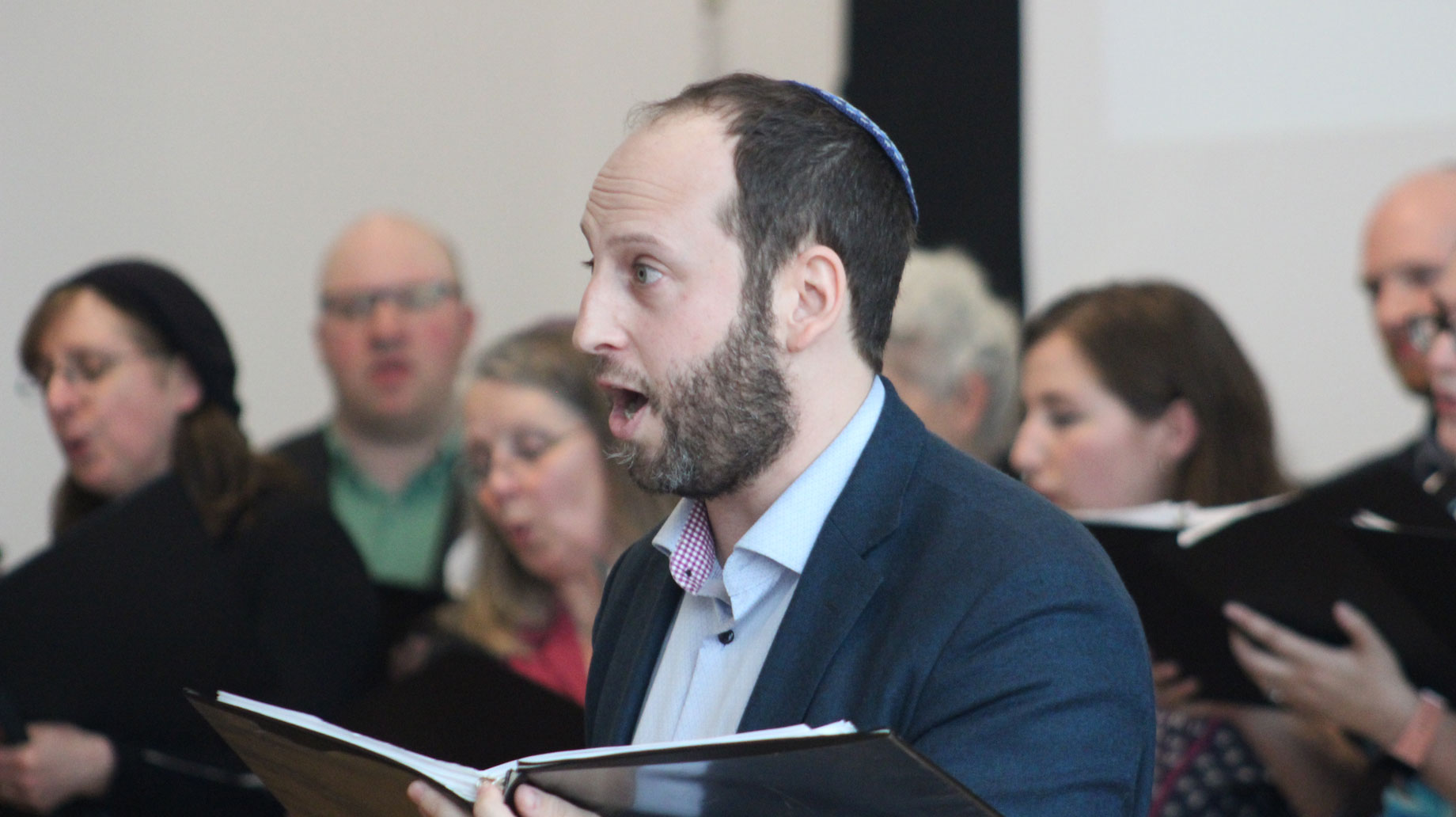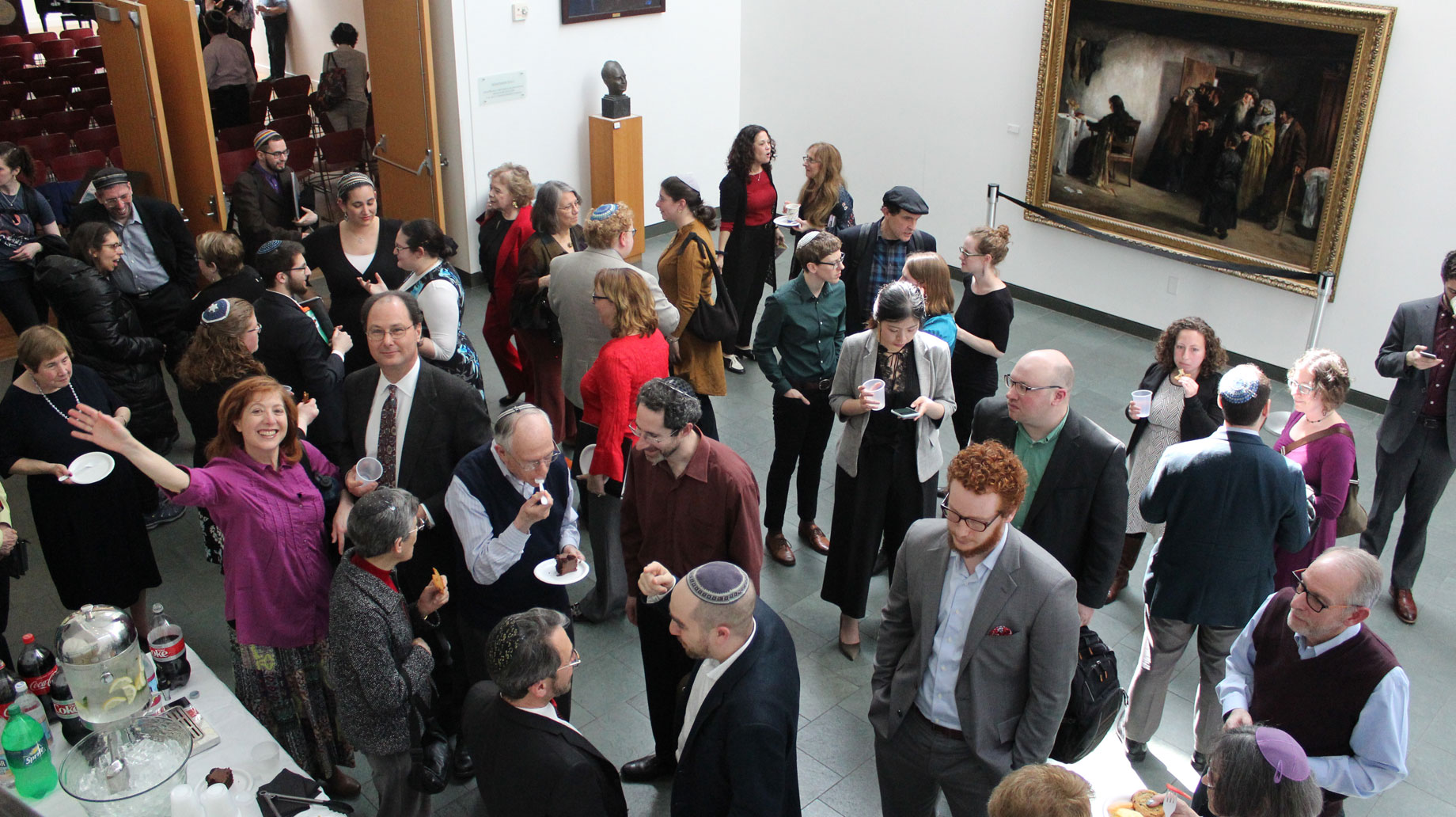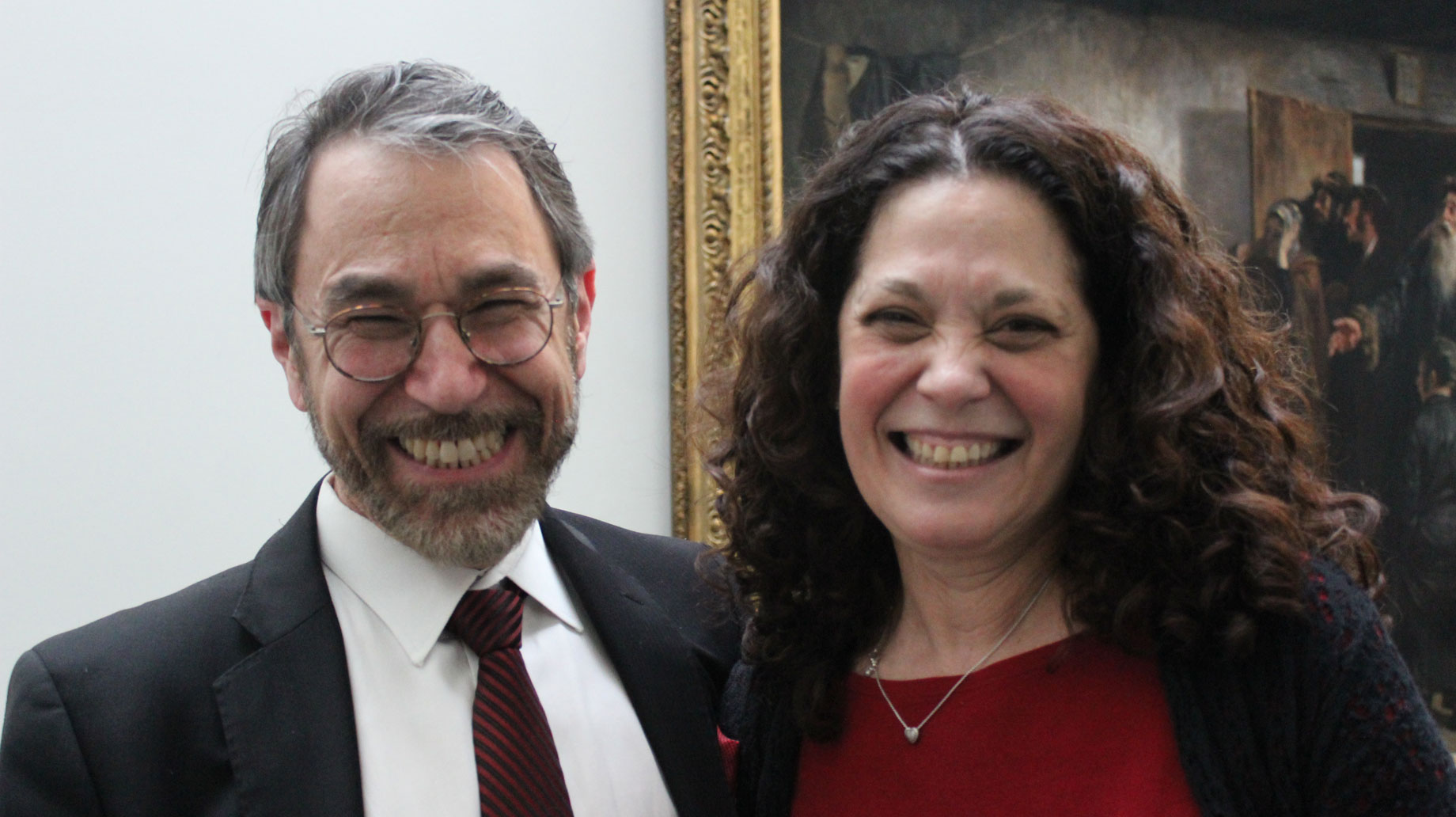Community Blog Huzzah la’Hazzan: Celebrating a Decade of Music and Leadership
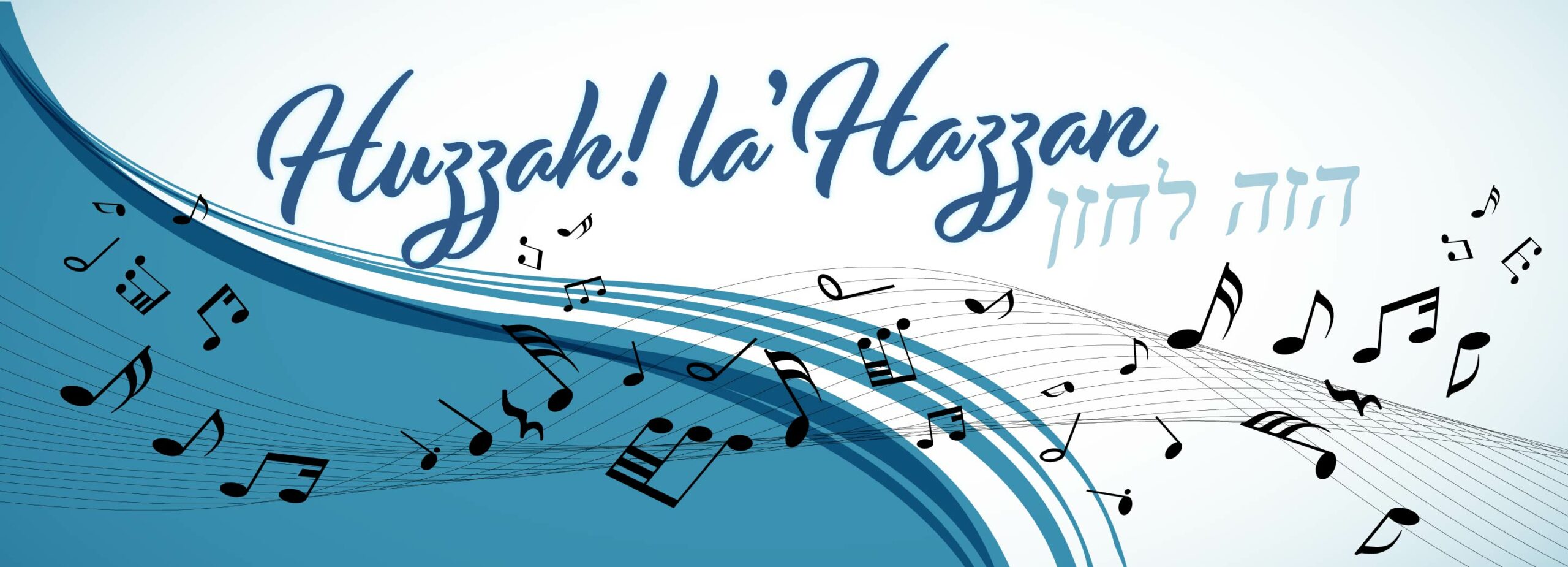
On May 6, the Hebrew College community honored Cantor Dr. Brian Mayer, Dean of the School of Jewish Music at Hebrew College for his 10 years of dedicated leadership. Cantor Mayer, a teacher and mentor, was also the creator of Hebrew College’s 3-year accelerated Cantorial Ordination for Spiritual and Educational Leadership Program, and, in collaboration with the Rabbinical School, the Rav-Hazzan Program and Ani Kinor: Prayer Leader Summer Institute.
Speakers paying tribute to Cantor Mayer included Hebrew College President Sharon Cohen Anisfeld (read her remarks below), Chief Academic Officer Rabbi Dr. Michael Shire, and alumna Cantor Hinda Eisen Labovitz, Can`14.
Upon Cantor Mayer’s departure, the community also celebrated the establishment of the Cantor Dr. Brian Mayer Scholarship, to be awarded to an outstanding Hebrew College cantorial student who embodies the values of pluralism, academic and musical excellence, and Jewish leadership central to Cantor Mayer’s legacy.
Kol HaKovod, Canter Mayer.
Please consider making a gift to the new Cantor Dr. Brian Mayer Scholarship. (Photos by Sharon Katz.)
Remarks by President Sharon Cohen Anisfeld
Brian, we have worked together for many years now – and I have watched with appreciation as you’ve nurtured our cantorial program, as you’ve envisioned and re-envisioned it, as you’ve overcome hurdles with determination and dedication, as you’ve shared your deep love of Jewish music, liturgy, and Torah with our students, and as you’ve cultivated a caring and passionate faculty and staff within the School of Jewish Music.
Doing all this while commuting from Providence, Rhode Island where you have a full-time job as a congregational cantor, has been demanding, to say the least. But while that juggling act has been a challenge, I think it has also been a key to your success. Because your work with our students has not been separate from your work with your congregants. Indeed your work here has been deeply grounded in the work there. You bring to this work a deeply felt – deeply lived – sense of sacred service. An awareness of how music and tefilah can uplift and enliven a community – how it can connect people to each other and to God.
Of the many honest and profound conversations we’ve had over the course of the past year, there is one in particular that will stay with me for a long time. We were talking about the relationship between tefilah leadership and tefilah practice. We were talking about the relationship between the performative and the personal, between the outer life and inner life of the prayer leader. We were talking about the risks of spiritual leadership, about what happens when a rabbi or cantor – or a clergy person in any role and in any religion — loses the vital connection to spirit that brought her or him into this work to begin with.
Brian, after so many years of service, you have not lost the vital connection to spirit that brought you into this work to begin with.
As we all know, there are some Psalms that begin with the words Mizmor L’David (a Song to David) while others begin with these words, but in the reverse order, L’David Mizmor (to David a Song). What’s the difference between these two formulations? In Pesachim 117a, the Talmud explains it this way. Melamed she’sharta alav Shekhina v’achar kach amar shira. Mizmor l’david melamed she’amar shira v’achar kach sharta alav Shekhina.
When l’David comes first – to David came a song – divine inspiration came first, and the song followed. The Shekhina rested upon David, and song poured out of him in response. But wherever Mizmor comes first – a song came to David – this means that David first began to sing, and only then did the Shekhina come to rest upon him — in response to and as a result of his song.
L’Brian mizmor, u’mizmor l’Brian.
Brian, may you continue to be awake and attuned to your inner life and to the lives of the individuals and communities you serve – so that you can respond to moments of holiness with a genuine outpouring of prayer and song – and even the most ordinary moments, you can lift us all on the wings of your song.


